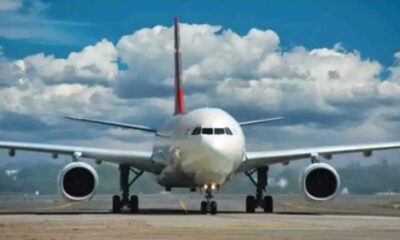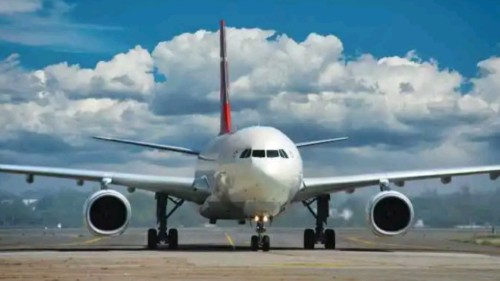The International Air Transport Association (IATA) has announced that Nigeria is no longer among the countries holding back airlines’ earnings, also referred to as blocked or trapped funds.
Kamil Al-Awadhi, IATA’s regional vice-president for Africa, the Middle East, and Europe (AME), made this known during a press briefing at the association’s latest annual general meeting (AGM).
He explained that although the issue of blocked funds still persists in the region, noticeable progress has been recorded in nations such as Nigeria, Egypt, and Ethiopia.
“Significant improvements have been made in Nigeria, Egypt and Ethiopia over the last year, with Nigeria no longer on the list of blocked funds countries,” the vice-president said.
He further noted that despite these advances, countries within the AME region still dominate the list of places with blocked funds. Mozambique currently holds the largest amount, followed by the XAF Zone (which includes Cameroon, Central African Republic, Chad, Republic of the Congo (Congo-Brazzaville), Equatorial Guinea, and Gabon), then Algeria and Lebanon.
Al-Awadhi stated that as of April, the total amount of trapped airline revenue globally was $1.28 billion, up from $1.7 billion in October 2024.
He revealed that 29 countries in the AME region are currently withholding international airlines’ revenue, with $1.1 billion — or 85 percent of the global figure — blocked in Africa and the Middle East.
“… out of that, $919 million is tied up in African countries,” the vice-president added.
According to the data shared by the IATA official, the countries with the highest levels of blocked funds in the AME as of April include Mozambique ($205 million), the XAF Zone ($191 million), Algeria ($178 million), Lebanon ($142 million), and Angola ($84 million).
‘GOVERNMENTS SHOULD PRIORITISE AVIATION IN ACCESS TO FX’
Al-Awadhi expressed concern about the effects of unreleased funds and emphasized that consistent cash flow is critical to the sustainability of airline operations.
He explained that when airlines cannot retrieve their earnings, it greatly disrupts their services and limits the destinations they can cover.
“Reduced air connectivity hampers countries’ competitiveness, diminishes investor confidence and labels countries as a high-risk place to do business,” he added.
“Strong connectivity is an economic enabler and generates considerable economic and social benefits.
“We call on governments to prioritise aviation in the access to foreign exchange on the basis that air connectivity is a vital key economic catalyst for the country.”
The issue of blocked funds has been a longstanding point of contention between Nigeria and foreign airlines.
In 2023, Nigeria reportedly had the highest volume of trapped airline revenue globally due to a prolonged shortage of foreign exchange that affected several sectors.
This situation prompted some international airlines to halt operations in Nigeria and barred local travel agencies from issuing tickets.
Amid rising tensions, the Central Bank of Nigeria (CBN), then led by Godwin Emefiele, disbursed $265 million to airlines in 2022 in a bid to ease the crisis in the aviation sector.
The current government continued the disbursements, releasing another $61.64 million as part of efforts to address the outstanding foreign exchange backlog, which was estimated to be around $7 billion.
In March 2024, the CBN announced that the FX backlog had been cleared, and IATA subsequently confirmed that Nigeria had settled 98 percent of the trapped funds owed to airlines.
The most recent figure for blocked funds in Nigeria stood at about $850 million.

 BIG STORY5 days ago
BIG STORY5 days ago
 BIG STORY3 days ago
BIG STORY3 days ago
 BIG STORY5 days ago
BIG STORY5 days ago
 BIG STORY5 days ago
BIG STORY5 days ago
 BIG STORY3 days ago
BIG STORY3 days ago
 BIG STORY5 days ago
BIG STORY5 days ago
 BIG STORY2 days ago
BIG STORY2 days ago
 BIG STORY1 day ago
BIG STORY1 day ago
























